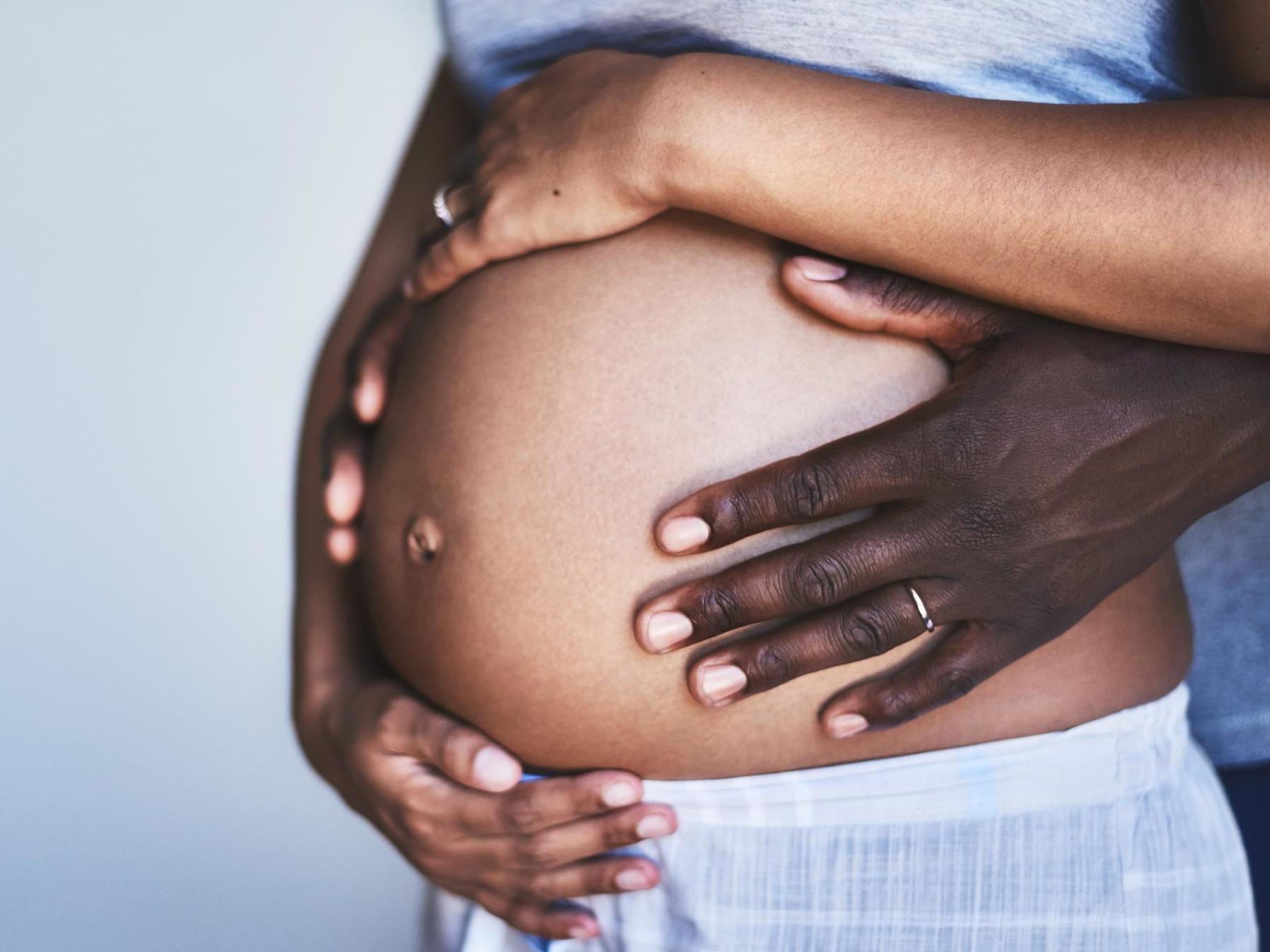Midwife who has delivered a thousand babies warns coronavirus crisis will lead to more pregnant women dying
‘If a woman falls sick or needs to go into labour, they still need to get a letter. Dealing with the police in these situations isn’t always easy,’ midwife tells Maya Oppenheim


A former midwife has sounded the alarm over the coronavirus pandemic wreaking havoc on Zimbabwe’s maternity services, warning that mothers-to-be will die if services are overwhelmed.
“If the woman ruptures the uterus, she will bleed to death and lose the baby,” Shelly Chitsungo tells The Independent by phone. “That has happened many times in Zimbabwe. I’ve seen this happen.”
Ms Chitsungo, who has delivered almost a thousand babies in Zimbabwe and now works as Unicef Zimbabwe’s health specialist, warned that healthcare provision for pregnant women was already struggling before the coronavirus crisis, and has now been gravely exacerbated.
“Zimbabwe instituted a lockdown so women could not travel from their homes to health facilities easily,” the 62-year-old, who has 30 years’ experience as a midwife, says.
“Public transport is no longer readily available. If a woman goes into labour, it is very difficult for them to get to a health facility. You have needed a letter to travel in the lockdown. If a woman falls sick or needs to go into labour, they have still needed to get a letter. Dealing with the police in these situations isn’t always easy.”

She says district hospitals sometimes only have one ambulance available to them, which means pregnant women can be in desperate need for help but be left waiting while the vehicle is in use.
“The time they spend travelling from primary care to the hospital is a very dangerous time,” Ms Chitsungo says. “Pregnant women first go to a primary care facility and if there is a problem, they go to a district hospital. You can find a clinic that is up to 100km from the referral institution.
“The ambulance could be at the hospital so will have to drive 100km to pick up a pregnant woman. In the rural provinces, it can take three hours to get a patient and then three hours back. If a woman is bleeding and they take more than two hours to reach the hospital, you can lose that woman.”
She says there has already been an increase in home deliveries during the coronavirus pandemic due to logistical issues around women managing to travel to healthcare services. There are growing numbers of women feeling too anxious to go to hospital due to fears they may contract coronavirus there, Ms Chitsungo adds.
Women are now being forced to resort to traditional or religious birth attendants from their communities, which she says can be highly dangerous if a woman suffers from complications during childbirth, such as the baby being in the wrong position in the uterus or a mother-to-be bleeding or having high blood pressure.
“Now with coronavirus, our health institutions do not have enough infrastructure,” Ms Chitsungo says. “They do not have enough rooms. They are not prepared. The World Health Organisation says we cannot use the same theatre for pregnant women and Covid-positive patients.
“Most district hospitals have one theatre. They are trying to set up another theatre but this requires essential equipment which we don’t currently have. Some of the equipment is as basic as a blood pressure machine.”
Power outages are commonplace and sterilising critical equipment and linen to contain the virus is highly difficult, Unicef says.
Antenatal and postnatal care has been stopped in some healthcare services during the Covid-19 emergency which means women are staying home where healthcare professionals are not able to see if they are experiencing pregnancy complications, she says.
The former midwife notes that the coronavirus crisis has created a serious dearth of both personal protective equipment (PPE) and healthcare workers. There are also difficulties around some medical professionals being reluctant to care for women who have contracted coronavirus, she adds.
An estimated 2.8 million pregnant women and newborns die every year – with one dying every 11 seconds due to factors which were generally preventable – around the world prior to the Covid-19 outbreak.
Campaigners previously told The Independent that the coronavirus pandemic will lead to pregnant women and newborn babies needlessly dying from preventable causes during childbirth.
“I decided to become a midwife because its a joy to bring life into the world,” Ms Chitsungo reflects. “There is satisfaction if mother and baby are well and healthy at the end of pregnancy. I wanted to help women in their journey to motherhood. However, it can be stressful when you lose the mother or the baby. You feel the pain inside you.”
Join our commenting forum
Join thought-provoking conversations, follow other Independent readers and see their replies
Comments